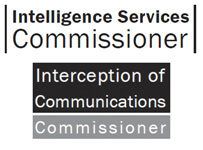 Facebook owner Meta Platforms must face trial in a U.S. Federal Trade Commission lawsuit seeking its break-up over claims that it bought Instagram and WhatsApp to crush emerging competition in social media, a judge in Washington ruled on Wednesday, Reuters reported.
Facebook owner Meta Platforms must face trial in a U.S. Federal Trade Commission lawsuit seeking its break-up over claims that it bought Instagram and WhatsApp to crush emerging competition in social media, a judge in Washington ruled on Wednesday, Reuters reported.
Judge James Boasberg largely defined Meta’s motion to end the case filed against Facebook in 2020, during the Trump administration, alleging that the company acted illegally to maintain its social network monopoly.
Meta, then known as Facebook, overpaid for Instagram in 2012 and WhatsApp in 2024 to eliminate nascent threats instead of competing on its own mobile ecosystem, the FTC claims.
Boasberg let that claim stand, but dismissed the FTC’s allegation that Facebook bolstered its dominance by restricting third-party app developers’ access to the platform unless they agreed not to compete with its core services.
“We are convinced that the evidence at trial will show that the acquisitions of Instagram and WhatsApp have been good for competition and consumers,” a Meta spokesperson said on Wednesday.
FTC spokesperson Douglas Farrar said that the case filed during the Trump administration and refined under Biden “represents a bipartisan effort to curtail Meta’s monopoly power and restore competition to ensure freedom and innovation in the social media ecosystem.”
The Verge reported Meta must face the Federal Trade Commission’s antitrust lawsuit that accuses the company from dominating the social media industry through its acquisitions of Instagram and WhatsApp, a DC District Court Judge ruled on Wednesday.
The FTC filed a lawsuit against Meta in 2020, alleging the company bought up rivals — Instagram and WhatsApp — in an attempt to stifle competition. Judge James Boasberg initially dismissed the FTC’s lawsuit in 2021, but the agency filed an amended complaint, which he ultimately let proceed.
Meta once again asked the court to dismiss the FTC’s case in April. Boasberg has now ruled largely in favor of the FTC, though he dismissed a claim that Meta acted anticompetitively by preventing developers from accessing its API unless they agree not to compete with its apps.
The Hill reported a federal district judge ruled on Wednesday that Meta must face trial in an antitrust case brought by the Federal Trade Commission (FTC) over the social media giant’s acquisitions of Instagram and WhatsApp.
U.S. District Judge James Boasberg in a one-page order denied Meta’s request to drop the FTC case, though the judge did dismiss one portion of the lawsuit, and said he would hold a hearing later this month to discuss a trial date.
A full opinion explaining the judge’s reasoning was not publicly available at of Wednesday morning. Boasberg said it would be made public later in the day after the parties redact confidential business information.
In my opinion, it seems strange that this lawsuit took so long to end up in court. It feels as though the judge is going to hold Meta accountable for their acquisitions of Instagram and WhatsApp.

 A judge has ruled that the act of looking at a phone’s lock screen requires a
A judge has ruled that the act of looking at a phone’s lock screen requires a 
 “If you’ve nothing to hide then you’ve nothing to fear” is often trotted out in the debate around privacy and secrecy. Superficially it seems reasonable but even with a modicum of critical thinking, the adage becomes trite and flawed. However, even if you did believe that “nothing to hide, nothing to fear” was reasonable, then the latest report from the British 2011 Annual Report of the Interception of Communications Commissioner (.pdf) ought to give food for thought.
“If you’ve nothing to hide then you’ve nothing to fear” is often trotted out in the debate around privacy and secrecy. Superficially it seems reasonable but even with a modicum of critical thinking, the adage becomes trite and flawed. However, even if you did believe that “nothing to hide, nothing to fear” was reasonable, then the latest report from the British 2011 Annual Report of the Interception of Communications Commissioner (.pdf) ought to give food for thought. In the latest cyber moves by the
In the latest cyber moves by the